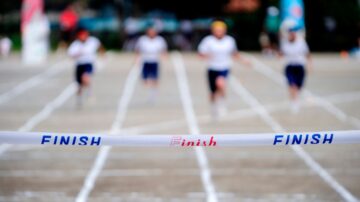Sports are among the earliest of human activities. Some sports were related to strengthening the body; others were related to the daily training for fighting as was common in the past; and yet others were only for fun.
Today, however, sports have become big business. Billions of dollars are earmarked by countries for them, and specialized clubs are established for different kinds of sports. Local, national, and international federations and competitions exist for different sports. Many TV channels have been established to obtain exclusive rights to air competitions, changing sports from a simple practice to a money-making activity on the individual, national, and international levels. Some countries allocate funds for international partnership in sports at the expense of indispensable public services for everyone.
Other problems arise. Violent sports such as boxing and wrestling may lead to the death of participants. Other sports include fighting animals such as bulls, lions, and snakes.
There are problems pertaining to sports that contain ceremonials related to the sport’s country of origin. This can be seen in bowing in karate and some other sports whose modern forms are different from their original. Ijtihad or juristic reasoning may reach different conclusions about the permissibility of such sports. One opinion may regard a given sport as allowable (halal) while another opinion may deem it prohibited (haram). This is because some muftis may overlook the origin of a given sport and base their opinion on its present form, while others may regard it unfeasible to overlook the origin and the primary rules of the sport.
The situation is much the same for women as for men. Women have practiced sports from earliest times. Islam never prohibited them from doing so but has only regulated how they engage in sports. However, the mania of gender equality has pushed women into wrestling, boxing, and other sports that entail being violent and exposing their bodies. This leads to the masculinization of women, which deprives them of the fairest things Allah Almighty bestowed on them: femininity and beauty. Unfortunately, many Muslim countries have adopted the call for complete equality, which disagrees with the nature of our Muslim society. This is apart from the Sharia violations in many sports and the airing of matches such as football and swimming.
Amidst all this comes the ijtihad that maintains that women have the right to practice sports within the regulations set out by the Sharia.
However, when one examines the jurisprudence of objectives and consequences, it becomes clear that juristic results vary from one issue to another, and from one sport to another. Thus, for jurists to come up with a contemporary ijtihad, they need to study thoroughly in order to issue fatwas applicable to the cases being judged.
Among the questions posed is whether it is permissible for someone to be a professional sports player and receive a salary that may be more than that of a government minister.
Another issue is the competition between clubs to buy players. According to club rules, players’ transfers are not permitted without their club’s approval and they must be at the required price. Some contemporary jurists think that this process resembles slavery or that it selling at highly exaggerated prices, and this exaggeration is another juristic problem. Thus, one issue in sport may have many problematic issues that need ijtihad.
Profiting in sports is not restricted to players, clubs, and countries. Spectators wager on the results of games and gain lots of money. Other profits are gained from selling flags and expensive clothes printed with pictures and names of players or teams.
Another controversial issue is the fanatic cheering of spectators, which may involve swearing, name calling, and violence.
There are also national issues raised by participating in competitions alongside occupying countries. Some countries have boycotted some international competitions as a kind of athletic jihad, in spite of the effect on international relations.
In light of the benefits of sports, people should not remain viewers in stadiums, cafes, and homes. Rather they should practice sports themselves. Recreation centers and parks should be available to all, and Muslims and others should use the facilities to be strong and healthy.
By Mas`oud Sabri**

